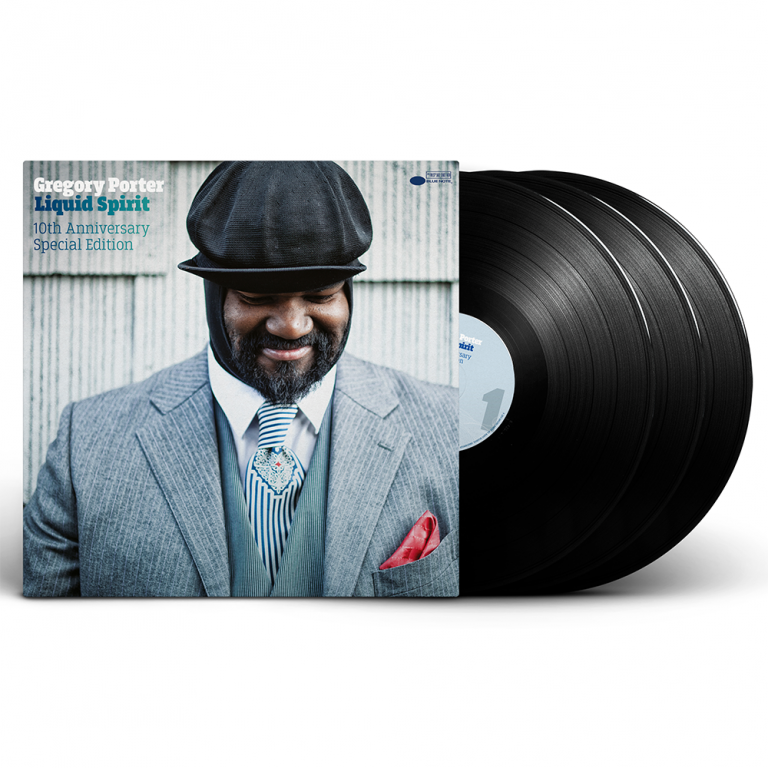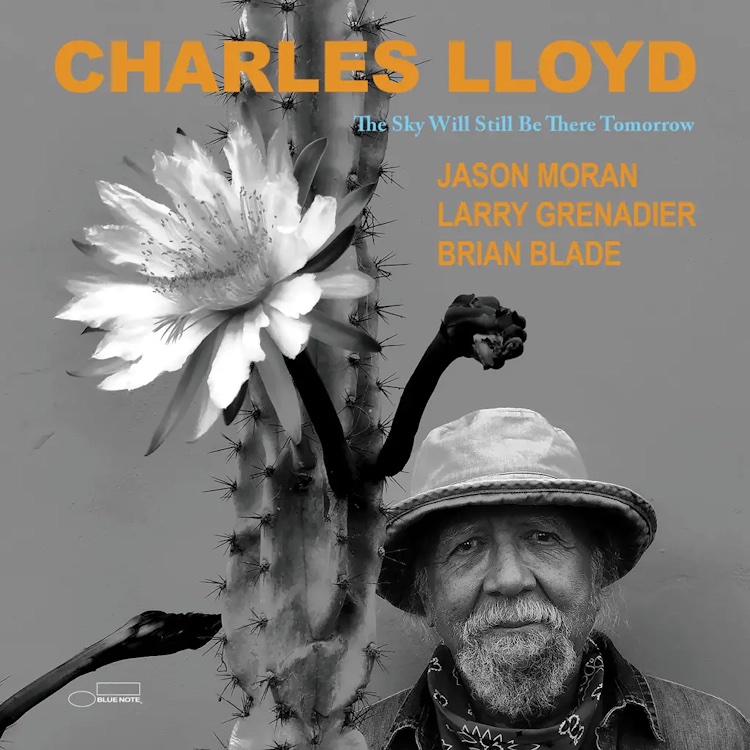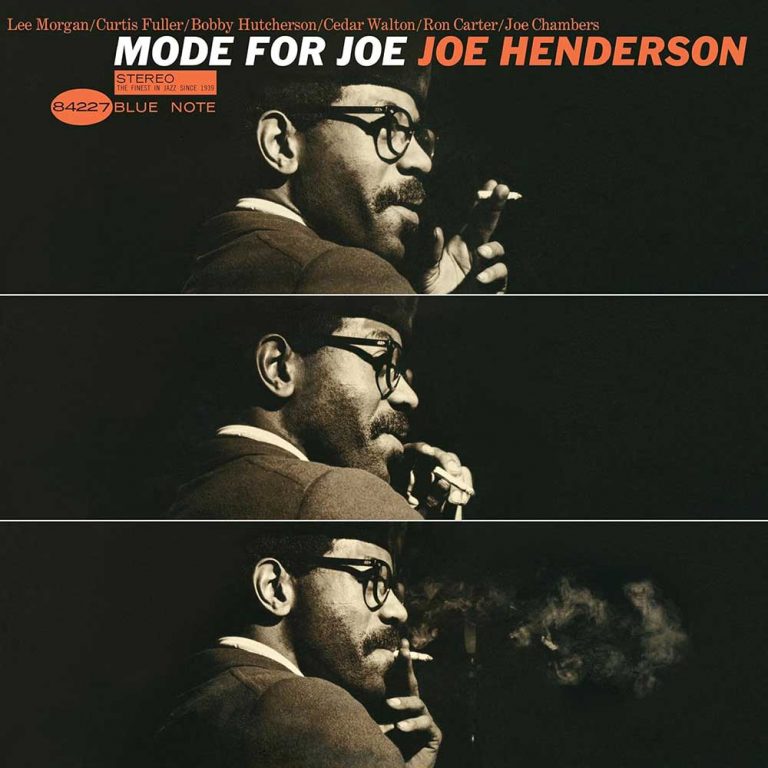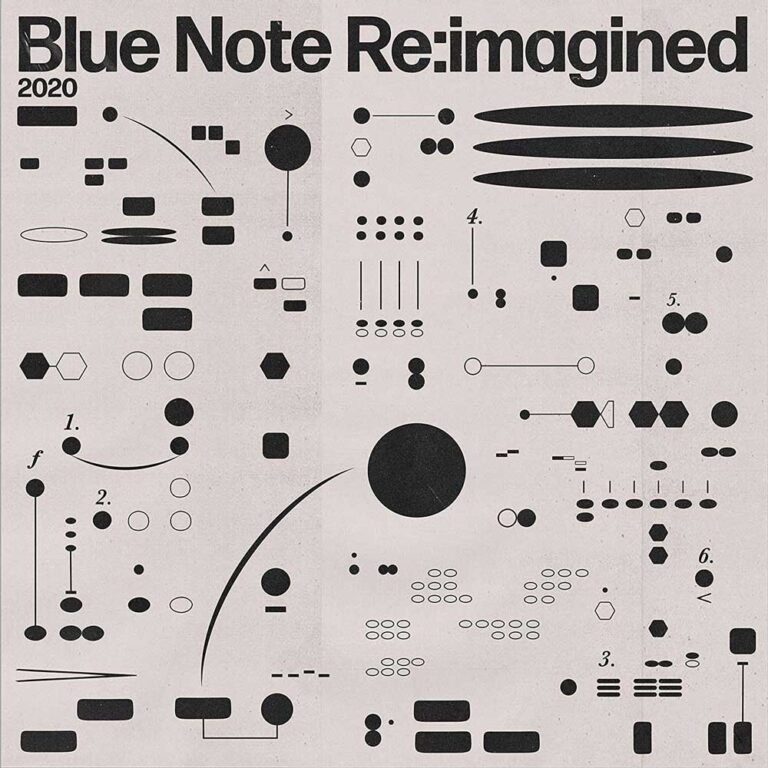Through the bebop, hard bop, post bop and free jazz eras under the partnership of co-founders Alfred Lion and Francis Wolff, to the jazz funk and fusion years with George Butler at the helm, Blue Note has always been at the cutting edge of jazz while upholding its rich legacy.
Since 2012 that responsibility has been on the shoulders of Don Was, who took over as President from Bruce Lundvall, who had steered Blue Note for nearly a quarter of a century after reviving the label in 1984.
Best known as producer of multiple albums for Rolling Stones and for his mutant disco group Was (Not Was), he took over Blue Note by accident rather than design. “I was in New York City and saw in the Village Voice that this singer I had heard on the radio in LA by the name of Gregory Porter was appearing at this club Smoke,” he tells me in the basement studio of Universal Jazz. “The next morning I was having breakfast with an old buddy of mine, Dan McCarroll, President of Capitol Records (which operates Blue Note). I said to him ‘you should sign this guy I saw last night’. Dan looked back at me and said ‘no you should sign him’.”
After taking over Blue Note from the great Bruce Lundvall, Don Was set about continuing the label’s forward thrust in documenting jazz in its most vibrant contemporary forms. From his very first year at Blue Note in 2012 with the signing of both Gregory Porter and neo soul jazz artist José James, through to current artists at the cutting edge of American jazz like alto saxophonist Immanuel Wilkins and vibraphonist Joel Ross, Was has had his ear close to the ground to find the jazz of the future.
In many ways he took on the role as an old school A&R man and deep fan of Blue Note rather than President of jazz music’s most important label as it navigates the digital age. “I had been collecting Blue Note records since 1966,” he says. “One of the first things I had to do was figure out why those records from 50 or 60 years ago remained relevant and vibrant in current times.”
The first day he got to the Blue Note HQ he was introduced to a manifesto written by the founders in 1939. “The manifesto basically dedicates the company to the pursuit of authentic music and giving the artists uncompromising creative freedom,” says Was. He also discovered a thread that ran through the history of the label. “In every era the artists signed to Blue Note were those who had studied the fundamentals of all the music that came before them. But then they took that knowledge and created something brand new out of it,” he says.

Having arrived at Blue Note as a fan, musician and producer Don Was quickly brought his own stamp to the label. “I’d been a record producer for 40 years, and my approach was to figure out what the artists’ vision was and to help them realise that. So I applied that to the label,” he says. “I also really believe in the manifesto. There is a definite Blue Note vibe and ethos I adhere to. And it’s important with all the pressures of running a label of niche music that we stick to that.”
With so many revolutions and evolutions in jazz over the label’s history I wonder what the role of the music is today and how Blue Note ensures it stays relevant. “We have a really diverse roster and everyone is moving it forward in their own way,” Was replies. “There’s not one movement that is going to characterise the era…it’s all woven together and everyone is coming up with new ways of doing that. It’s really exciting to see the thing move forward.”
As part of Blue Note’s 85th anniversary, the new vanguard of American jazz artists come together for a 35 date tour. The Blue Note Quintet are helmed by Musical Director pianist Gerald Clayton alongside Immanuel Wilkins and Joel Ross, who in the great Blue Note tradition regularly appear on each other’s albums.
The Quintet is completed by bassist Matt Brewer, and one of Blue Note’s most exciting new signings, drummer Kendrick Scott who released two albums last year with tenor saxophonist Walter Smith III. “This is not just a nostalgic look back at Blue Note, they have the spirit and ethos but they are doing some radical stuff,” says Was. “They have an album out later this year that is one of 20 new front line releases in our 85th year. And I would stack this line up of new music against any year in the history of Blue Note.”
Don Was is a strong believer that the strength of jazz lies in its ability to continually evolve. “Nobody at Blue Note is in stagnation,” he says. “Take Charles Lloyd who at the age of 86 is, in my opinion, making the best records of his career. His whole approach to music is so elevated and is evolving constantly. You usually find that in someone who is 23 years old not 86. And that is the beauty of this music. The exploration never ends.”
Don Was discovered the power of Blue Note as a teenage fan in the 1960s when he heard “the anguished cries” in the saxophone of Joe Henderson on the album “Mode for Joe”. “I think the whole point of the undertaking is to communicate, to get under people’s skin and make them feel something that helps them understand their life and what is going on around them” he says.
Going back to the “Blue Note Breaks” albums of the early ‘90s that documented records sampled in hip hop or the recent “Blue Note Re:Imagined” series, the label has continually connected to the next generation. It’s reflected through the Blue Note Spotify playlists compiled for the 85th anniversary. This features boundary pushing artists like Robert Glaser, Makaya Mcraven, Meshell Ndegeocello, and Cautious Clay whose eclectic representation of jazz has marked Don Was’s tenure.
In the years since he took over as President, there has been a resurgence in vinyl, a medium Don Was has a deep love for. “Firstly jazz music sounds great coming from a turntable, it’s got such a warm sound,” he says. “Then there is the physicality of holding the jacket or watching the record go around while listening to the whole side. You can’t do that with a digital file or CD. And finally there is something about what these records look like in your home. The vinyl you collect is a really powerful statement of who you are.”
The jewel in Blue Note’s vinyl crown is the Tone Poet Audiophile Series, the all analogue reissues mastered from the original tapes. “It would really bring tears to your eyes going into the vaults and seeing the analogue tape boxes,” says Was. “The first time I heard a master of “Mode For Joe”, my first Blue Note record, it sounded so real like I was in the room with the musicians. I got choked up listening to it. And I wanted to share that experience with people.”
The series was born out of Don Was’ admiration for the Blue Note LP reissues by Music Matters headed by Joe Harley, a.k.a. the “Tone Poet”, who was brought on board to curate and supervise the series. From the heavyweight gatefold sleeves featuring the evocative photography of Francis Wolff (who is also celebrated as part of the 85th Anniversary with a series of limited edition collector’s pieces) and 180g audiophile LP pressings by Record Technology Inc, to the mastering direct from the original tapes by Kevin Gray of Cohearent Audio, this is vinyl taken to the next level.
Despite their serious focus on vinyl, that sees Blue Note release 25 Tone Poet albums in its 85th year alongside 25 in the Classic Reissue series, Don Was is no stranger to Spotify as a way of discovering new music. “I love going to independent record stores and discovering things. But there is also something to be said for having a million things in one place,” says Was. “I listen constantly and there’s really nothing like the joy of searching for something then you find that music that nobody told you about. Then you can share that with everyone.”
In a way that is what Blue Note has been there for since its formation. “When those two young guys Alfred Lion and Francis Wolff came over from Berlin to New York, they just wanted to be around the music. When they started the sessions for Blue Note they weren’t doing it to be a business they were doing it to be around the scene,” says Was. “Of course they went from documenting the scene to impacting it. But they were just fans – like me.”
Read on… Jason Moran and the Bandwagon’s Triumphal Tardis
Andy Thomas is a London based writer who has contributed regularly to Straight No Chaser, Wax Poetics, We Jazz, Red Bull Music Academy, and Bandcamp Daily. He has also written liner notes for Strut, Soul Jazz and Brownswood Recordings.
Header image: Don Was. Photo: Myriam Santos / Blue Note Records.






